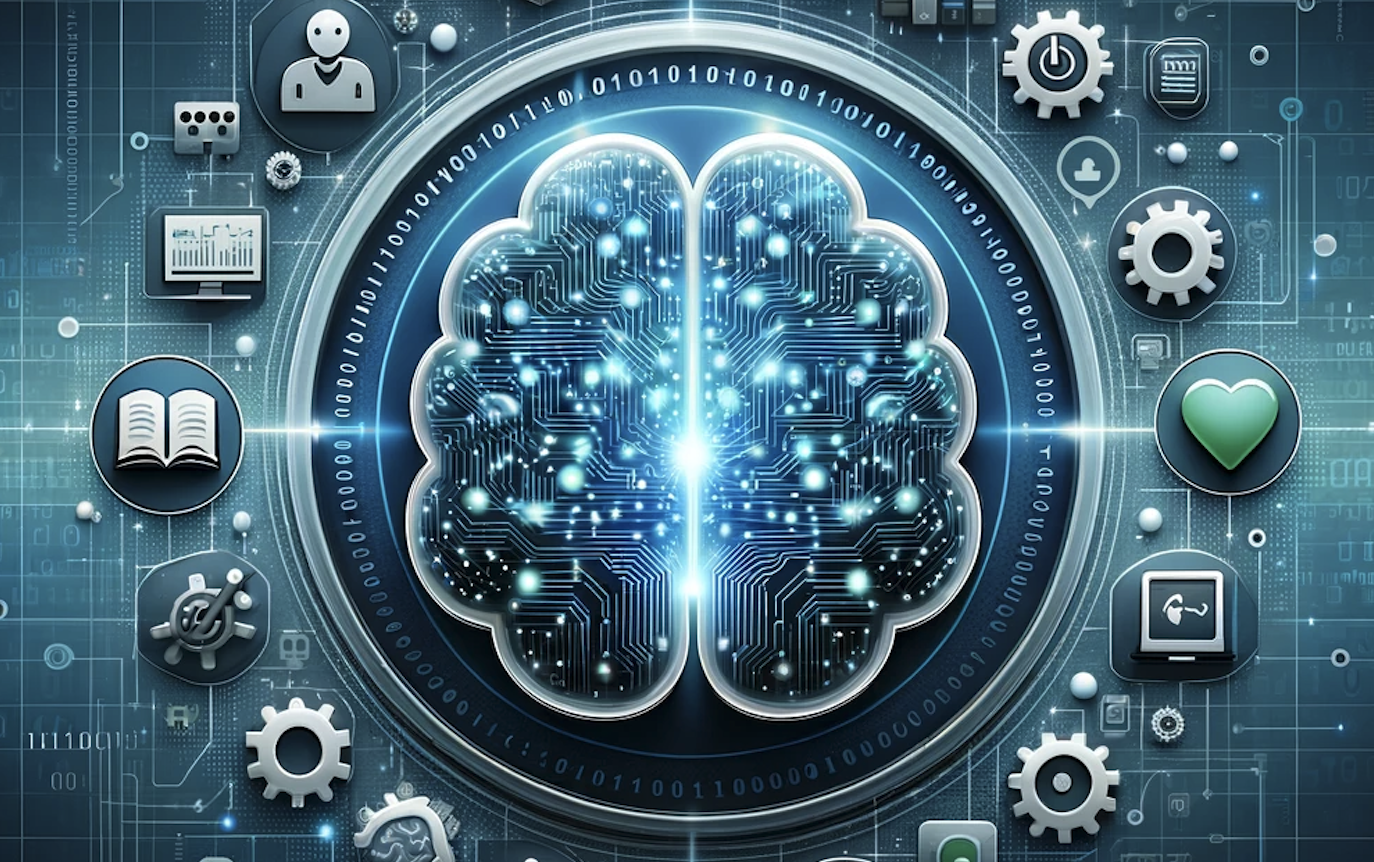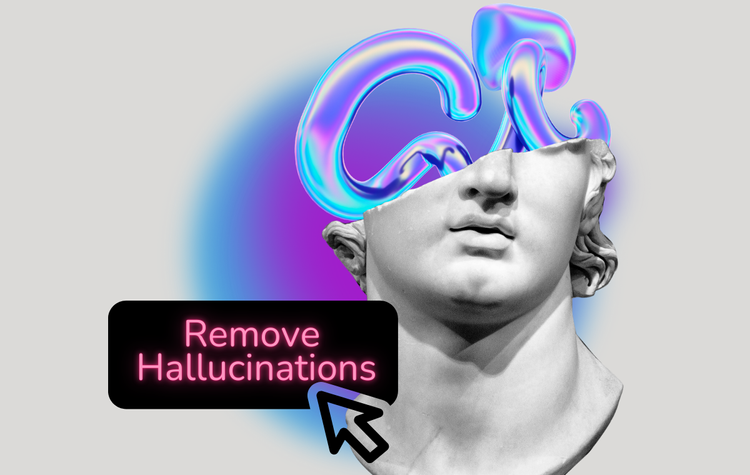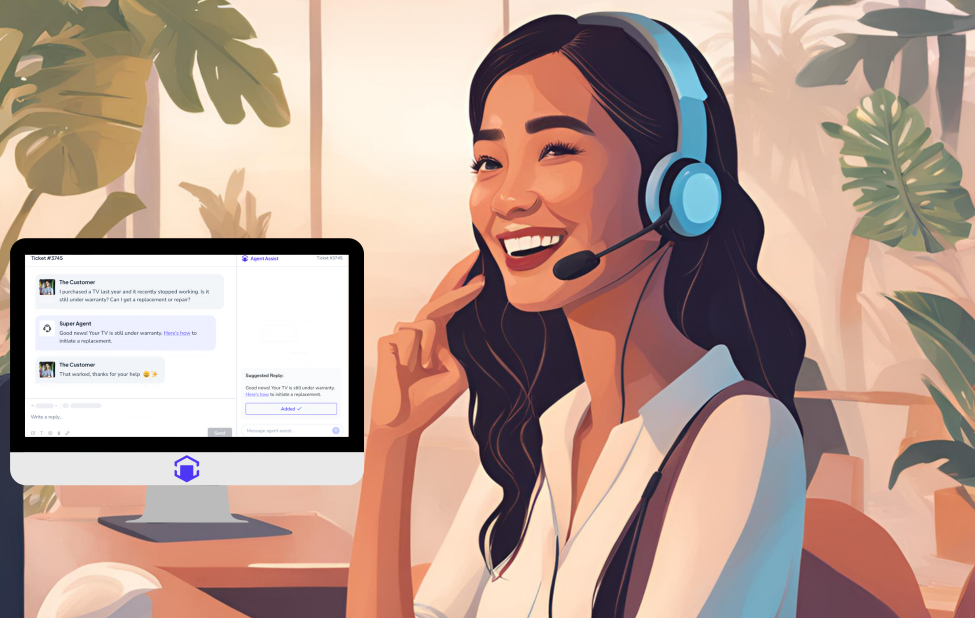How to Use ChatGPT for Customer Service
A custom generative AI chatbot like Gleen AI can deliver all the benefits of ChatGPT to customer service teams. It can also eliminate many of the valid concerns around ChatGPT.

In the rapidly evolving landscape of customer service, artificial intelligence (AI) tools are becoming increasingly necessary.
Among these, ChatGPT, developed by OpenAI, stands out as a simple tool that can significantly improve customer service.
This article explores how businesses can use ChatGPT for customer service, including potential use cases, challenges, and alternative solutions.
What is ChatGPT?
ChatGPT is a chatbot released by Open AI on Nov 30th, 2022.
ChatGPT utilizes GPT-3.5 and GPT-4, advanced AI models created by Open AI known as "large language models" or LLMs.
Open AI has trained its LLMs on vast amounts of text on the internet. They have the ability to predict the next best word in a conversation, i.e., they can generate original content. As a result, LLMs fall into the category of generative AI.
As a result, chatbots that use LLMs to process user input can have realistic conversations with end users. In addition to having conversations, chatbots can produce longer output, like entire emails, documents, and even images.
ChatGPT is a free tool that is open to the public, and it uses GPT-3.5 on the back-end.
Users can also pay $20/month for ChatGPT Plus and use either GPT-3.5 or GPT-4 on the back-end. GPT-4 is slower, but its responses are much more realistic.
Important Note: ChatGPT is Open AI's chatbot, but Open AI has created APIs for both GPT-3.5 and GPT-4. As a result, any developer can develop a chatbot and use GPT-3.5 or GPT-4 on the back-end as an LLM.
Basic Uses of ChatGPT in Customer Service
ChatGPT can improve the productivity of customer service agents in a number of ways, including:
- Drafting Customer Emails: Agents can use ChatGPT to drafting and refining customer emails. Agents can enter outlines of emails or initial email drafts, and ChatGPT can write/rewrite the entire email. ChatGPT can help formulate clear and effective responses, enhancing customer communication.
- Drafting Customer Support & Onboarding Documents: Agents can enter outlines of onboarding documents into ChatGPT. ChatGPT can create initial drafts of onboarding documents and accelerate the writing process.
- Analyzing Customer Service Data: Code Interpreter is a ChatGPT Plus plug-in that analyzes data. Agents can upload customer data and ask questions in plain English. ChatGPT can quickly provide valuable insights for customer success.
- Writing Customer Service Blog Posts: ChatGPT can create content for customer service blogs. Agents can provide outlines, and ChatGPT can accelerate the process of creating informative and engaging posts.
- Design Images: ChatGPT Plus integrates with DALL-E 3, Open AI's generative AI for images, to create images. Agents can ask DALL-E 3 to design appealing images for customer service blogs and other customer support documentation.
Problems/Concerns of Using ChatGPT for Customer Service
Despite its advantages, there are concerns associated with using Chat GPT for customer service:
- Data Privacy & Security: OpenAI tracks and saves all interactions in ChatGPT. Open AI can use this data to train and benefit its customers. Uploading sensitive data to ChatGPT raises data privacy and confidentiality concerns.
- Relevance: ChatGPT uses the entire internet as its knowledge base. ChatGPT does not train on company-specific data (or even customer-specific data). As a result, ChatGPT may have limited ability to provide responses that are highly relevant.
- Tendency to Hallucinate: ChatGPT (and all LLMs) can generate incorrect information. We call LLM incorrect answers hallucinations. Hallucinations are an inherent problem of LLMs. LLMs simply predict the next best word in a conversation without knowing if the response is accurate or not.
Given the lack of relevance and the tendency to hallucinate, companies should not deploy a ChatGPT support chatbot to directly respond to customers.
Alternatives to ChatGPT
Given the concerns around using Chat GPT for customer support, customer service teams can consider the following alternatives.
ChatGPT Enterprise
Open AI sells ChatGPT Enterprise to companies. Companies can make ChatGPT Enterprise available to all its employees.
All data entered into ChatGPT Enterprise will remain confidential. Furthermore, Open AI promises not to train its models on data entered into ChatGPT Enterprise.
ChatGPT Enterprise solves the data privacy & security concerns around ChatGPT. ChatGPT Enterprise doesn't, however, resolve the concerns around relevance and hallucination.
Custom GPTs
Custom GPTs (or GPTs) are customized versions of ChatGPT that allow companies to upload company-specific knowledge or documents. The resulting GPT will use those documents to supplement ChatGPT's knowledge.
GPTs are an attempt to help ChatGPT provide more relevant answers. Still several concerns exist around GPTs, including:
- GPTs can leak uploaded documents. Companies should assume that any document uploaded to a GPT is as good as public.
- Data confidentiality: Open AI will train on all queries entered into a GPT. In addition, Open AI doesn't share GPT queries/responses to the creator of the GPT.
- GPTs hallucinate. GPTs do not constrain answers based on the uploaded knowledge. They answer using all ChatGPT's knowledge from the entire internet.
Watch a head-to-head comparison of Gleen AI and a GPT trained on the same knowledge:
Fine Tune an LLM
To improve the relevance of LLM responses, customer services teams might choose to fine tune an LLM. Fine-tuning consists of taking a pre-trained model like GPT-3.5 and then further training it on a smaller, more relevant set of data.
Fine-tuning an LLM is not without its downsides, however. Specifically, fine-tuning an LLM:
- Takes time and money.
- Requires machine learning expertise.
- Can cause the LLM to go outside its content safety guardrails.
- Does not eliminate hallucination.
Deploy a Custom Generative AI Chatbot
A custom generative AI chatbot like Gleen AI can deliver all the benefits of ChatGPT to customer service teams. It can also eliminate all the above concerns. Specifically:
- Relevance: Customer service teams can upload their own knowledge into Gleen AI, which will generate highly relevant responses.
- Data Security: Gleen AI considers your knowledge base proprietary and customer queries confidential. Even though Gleen AI uses Open AI's APIs, Open AI will not train on the uploaded knowledge or queries.
- No Hallucination: We specifically built Gleen AI to eliminate hallucination. The underlying LLM is only 20% of Gleen AI's tech stack is the LLM. The remaining 80% of Gleen AI's technology focuses on avoiding hallucination.
- Speed and effort: Unlike LLM fine-tuning, Gleen AI can be ready in a matter of hours. You do not need machine learning expertise to deploy Gleen AI. Content safety guardrails within the LLM remain intact as well.
Customers can use Gleen AI confidently for direct answering questions of customers.
Create your free generative AI chatbot with Gleen AI or schedule a demo today.
Conclusion
In conclusion, the potential of ChatGPT (or generative AI, more broadly) to permanently change customer service is undeniable.
ChatGPT can improve the operating efficiency of customer service teams in a number of different ways.
However, enterprises must carefully weigh its benefits against the concerns of data privacy and accuracy.
By selecting Gleen AI, enterprises can get all the many of the pros of ChatGPT without the cons.
They can harness the power of generative AI, keep their data confidential, improve chatbot response relevance, and avoid hallucination.
Request a demo of Gleen AI, or create a free generative AI chatbot with Gleen AI.



